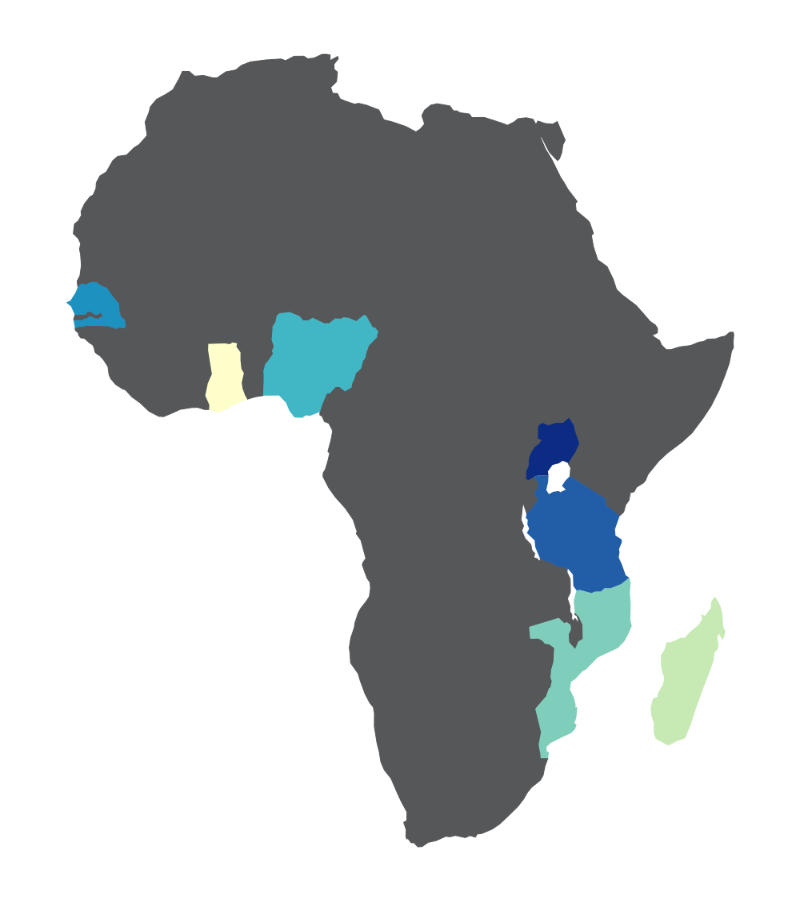Rice is a food for the future in Africa, with consumer demand for rice growing faster than any other staple crop. With most farms yielding less than two tons per hectare, Africa's taste for rice could lead to greater reliance on food imports, with US $7 billion already spent on imported rice each year, or 36 percent of total consumption.
High-impact Rice Breeding in East and West Africa (Hi-Rice) is a new project that tackles one of the sources of low rice productivity: a lack of high performing, locally adapted varieties.
Working with eight national agricultural research system (NARS) breeding programs in seven key rice-producing countries, HiRice will introduce best practices and technologies to accelerate the delivery of improved varieties that meet the needs of farmers and consumers.
Hi-Rice is led by the CGIAR Excellence in Breeding Platform (EiB), which adapts modern breeding tools and approaches from both the private and public sector for breeding programs targeting important crops in Africa, Asia and Latin America.
HiRice will offer training and support in five key areas of breeding program modernization promoted by EiB:
- Demand-driven breeding approaches, where customer needs are documented in product profiles which describe future varieties to be delivered by the breeding program.
- The use of quantitative genetics principles to design breeding programs to deliver on product profiles commensurate to the resources available to NARS.
- Regular use of genotyping for quality control and to predict which rice plants have the genetics that match the product profile.
- Improved breeding operations, for example using mechanization to reduce costs and improve experiment data.
- Routine digitization of experiment data to track and improve breeding activities.
 From June 2020 to December 2021, the project will be active in Ghana (Crops Research Institute [CRI], Savanna Agricultural Research Institute [SARI]), Madagascar (National Center for Applied Research on Rural Development [FOFIFA]), Mozambique (Institute of Agricultural Research [IIAM]), Nigeria (National Cereals Research Institute [NCRI]), Senegal (Senegalese Institute of Agricultural Research [ISRA]), Tanzania (Tanzania Agricultural Research Institute [TARI]), and Uganda (National Agricultural Research Organization [NARO]).
From June 2020 to December 2021, the project will be active in Ghana (Crops Research Institute [CRI], Savanna Agricultural Research Institute [SARI]), Madagascar (National Center for Applied Research on Rural Development [FOFIFA]), Mozambique (Institute of Agricultural Research [IIAM]), Nigeria (National Cereals Research Institute [NCRI]), Senegal (Senegalese Institute of Agricultural Research [ISRA]), Tanzania (Tanzania Agricultural Research Institute [TARI]), and Uganda (National Agricultural Research Organization [NARO]).
HiRice builds on the success of previous projects such as Transformative Rice Breeding (TRB), which successfully modernized some national rice breeding programs in South Asia and eastern and southern Africa in a short time period. The project is implemented in alignment with the International Rice Research Institute (IRRI), AfricaRice and the Integrated Breeding Platform (IBP).